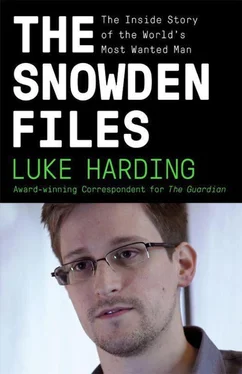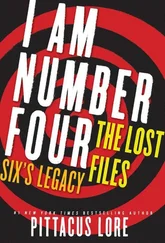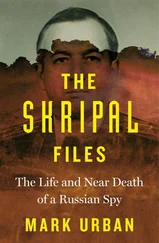The lawyers were soon sucked into Snowden’s cloak-and-dagger world. Albert Ho describes a rendezvous. He got into a car one night at an agreed spot and found Snowden inside, wearing a hat and sunglasses. Snowden didn’t speak, the lawyer told the Washington Post . When they arrived at the home where Snowden was staying he whispered that everyone had to hide their phones in the refrigerator. Over the next two hours the lawyers went through his options with him. Ho brought dinner: pizza, sausages and chicken wings, washed down with Pepsi. ‘I don’t think he ever had a well-thought-out plan. I really think he’s a kid,’ Ho said afterwards.
The lawyers’ assessment was negative. It was possible that Snowden might eventually prevail in a battle against US extradition. But in the meantime the most likely option was that he would sit in jail while the Hong Kong courts considered his asylum claim. This legal tussle could drag on for years. Snowden was horrified to discover that behind bars he would have no access to a computer.
He didn’t mind being confined in a small room. But the idea of being exiled from the internet was repugnant to him. ‘He didn’t go out, he spent all his time inside a tiny space, but he said it was OK because he had his computer,’ Ho told the New York Times . ‘If you were to deprive him of his computer, that would be totally intolerable.’
After the meeting, Ho was asked to take soundings from the Hong Kong government. Would Snowden get bail if arrested? Could he somehow flee the country? The whistleblower presented a dilemma for Hong Kong’s administrators. The territory is part of China but governed under the ‘one country, two systems’ framework; it has notional autonomy but Beijing retains ultimate responsibility for foreign affairs.
On the one hand, China’s spies would certainly be interested in keeping Snowden, if they could get access to his tens of thousands of highly sensitive NSA documents, revealing the ambit and protocols of American surveillance. On the other hand, if Hong Kong refused to repatriate him, this would place Sino–American relations under great strain. Already the US was piling on the pressure. A major international row would be an unwelcome distraction.
There were other factors, too. Snowden’s case might raise uncomfortable questions at home for the Chinese authorities. Many Chinese citizens were unaware that their own security services also engaged in domestic spying, with phone hacking, email and postal interception rampant, not to mention censorship. Holding on to Snowden could set off an uncomfortable internal debate over matters currently under the table.
Hong Kong’s chief executive Leung Chun-ying held numerous meetings with his top advisers, it was reported, struggling to decide what to do over a thorny US request for Snowden’s detention.
Public opinion in Hong Kong was largely pro-Snowden, boosted by some carefully targeted disclosures. On 12 June Snowden gave an interview from hiding to the South China Morning Post . In it, he revealed that the US hacked millions of China’s private text messages. ‘The NSA does all kinds of things like hack Chinese mobile phone companies to steal all of your SMS data,’ he told the paper. The agency had also, he alleged, attacked China’s prestigious Tsinghua University, the hub of a major digital network from which the data on millions of Chinese citizens could be harvested.
For years, Washington had complained bitterly about Beijing’s industrial-scale stealing and spying in cyberspace. In numerous documents GCHQ and NSA identify China and Russia as the two nations responsible for most cyber-espionage. Now it appeared the NSA did the same thing, only worse.
Snowden must have hoped that in the wake of his leaks the Hong Kong government would treat his case sympathetically. After Ho’s approach to the authorities, an intermediary contacted Snowden. The intermediary delivered a message. The message was that Hong Kong’s judiciary was independent. And, yes, it was possible he would spend time in jail. But – and this was the crucial bit – it also said the government would welcome his departure.
Ho sought further assurances. He told the Guardian ’s Beijing correspondent Tania Branigan, who had flown to Hong Kong: ‘I talked to government officials seeking verification of whether they really wanted him to go, and in case they really wanted him to go, whether he would be given safe passage.’
On Friday 21 June the US government formally indicted Snowden with espionage. It sent an urgent official extradition request. ‘If Hong Kong doesn’t act soon, it will complicate our bilateral relations and raise questions about Hong Kong’s commitment to the rule of law,’ a senior Obama administration official said.
With his legal options shrinking by the hour, Snowden made a fateful decision. He would leave.
Six thousand miles away, someone else in hiding had been taking a close interest in these developments. Julian Assange had been frantically trying to make contact with the fugitive NSA contractor. Assange is the self-styled editor-in-chief of WikiLeaks. He had been holed up in the tiny Ecuadorean embassy in London for over a year.
Assange had taken refuge inside the apartment building – Flat 3b, 3 Hans Crescent – after his own legal options ran out. In summer 2012, Britain’s supreme court ruled that an extradition warrant served by authorities in Sweden was valid. Assange should be extradited to answer complaints from August 2010 that he sexually assaulted two Swedish women, the court said.
Assange promptly walked into the embassy and was granted political asylum by Ecuador’s leftist government. The tactic seemed extravagant to some. During the cold war, Hungary’s dissident Cardinal Mindszenty spent 15 years in the US embassy. But this was 2012, not 1956. There were few signs of state brutality amid the penthouses of London’s Knightsbridge; instead of Soviet tanks there were Bentleys and Ferraris. Thanks to his going to ground in this way, WikiLeaks had released little of significance for some time. Assange, as the New York Times ’s David Carr put it, ‘looked like a forgotten man’.
Now, Assange barged his way into Snowden’s drama. Much is mysterious. But it is known his approaches came via intermediaries and through his Hong Kong lawyers. These pre-dated Snowden’s video confession, and they grew more intense after it.
From Assange’s perspective the approach was logical. Snowden was another anti-US whistleblower in trouble, apparently just like him. In 2010, Assange had leaked the thousands of classified documents obtained from the US private Chelsea Manning. Their publication, in collaboration with the Guardian and other newspapers, had caused a global furore. Manning was jailed and a grand jury reportedly investigated Assange over the leaks. Assange’s woes with Swedish women were a separate matter, though the former hacker would frequently – and some would say cynically – confuse the two. But Assange did have some claim to specialised expertise in asylum issues. And the Snowden story also opened up a chance for him to step back into the limelight.
Ideologically, the two had much in common: a passionate commitment to the internet and transparency, a libertarian philosophy when it came to information, and strong digital defence skills. Snowden had at one point considered leaking his NSA files to Assange. He later reconsidered on the grounds of risk. Assange’s confined situation at the embassy in London, right under the nose of the British authorities and their NSA allies, meant inevitably that he was bugged and constantly monitored.
In terms of temperament, Snowden was nothing like Assange. He was shy, allergic to cameras, and reluctant to become the focus of media attention. He never sought celebrity. The world of journalism was utterly alien to him. Assange was the polar opposite. He liked the public gaze. Charming, he was capable of deadpan humour and wit, but could also be waspish, flying into recrimination and anger. Assange’s mercurial temperament spawned both groupies and ill-wishers: his supporters saw him as a radical paladin fighting state secrecy, his enemies as an insufferable narcissist.
Читать дальше












